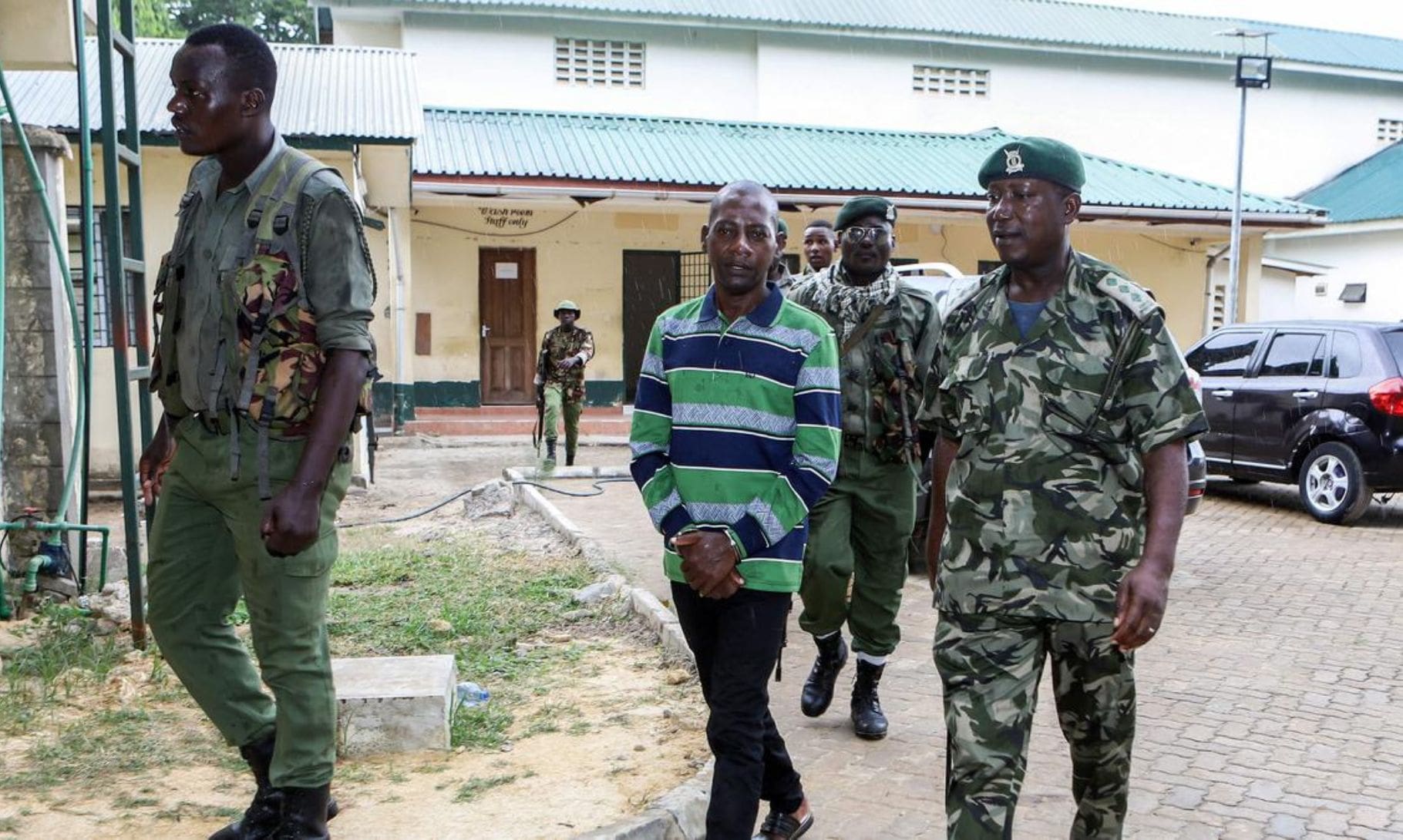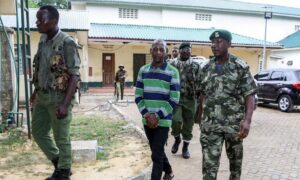In a significant trial in Mombasa, Kenya, pastor Paul Nthenge Mackenzie and 94 others face charges linked to a cult responsible for one of the world’s worst massacres. Mackenzie, a former taxi driver, is accused of leading a doomsday cult that allegedly caused over 400 deaths through starvation in a remote area known as the “Shakahola forest massacre” near Malindi.
The trial began on Monday, with Mackenzie and his co-defendants pleading not guilty to charges including terrorism, murder, manslaughter, and child cruelty. Prosecutors claim Mackenzie ran an extremist group disguised as a church, using an armed militia to enforce his control effectively.
Authorities discovered the tragic scene last year following a tip-off, finding bodies and severely malnourished survivors in Shakahola forest. Autopsies revealed victims died mainly from starvation, with some subjected to additional violence like strangulation and beatings. Shockingly, organs had been removed from some bodies.
The cult, known as Good News International Church, operated for years under Mackenzie’s leadership. Despite prior legal issues and warnings, including reports of police negligence in responding to initial starvation reports, Mackenzie continued his activities.
The trial is expected to involve about 90 witnesses and includes plans to visit the crime scene to demonstrate the cult’s organization and operations. The case has prompted criticism of Kenyan authorities for failing to prevent the tragedy despite earlier warnings and reports of criminal activities within the cult.
In response to the Shakahola massacre, Kenyan officials have pledged legal reforms to better regulate religious groups, especially those engaged in criminal activities under the guise of religion. The incident has highlighted gaps in oversight and law enforcement concerning unregulated churches and cults in Kenya, emphasizing the need for stricter regulations and proactive measures to prevent similar tragedies.
As the trial unfolds, it serves as a stark reminder of the risks posed by extremist groups exploiting religious freedom and the challenges faced by authorities in protecting vulnerable communities from exploitation and harm.














